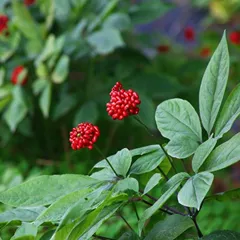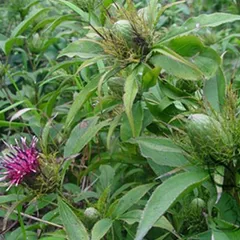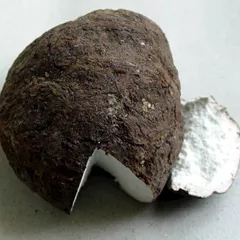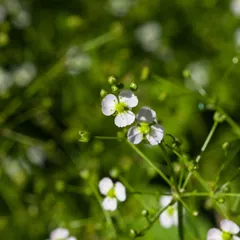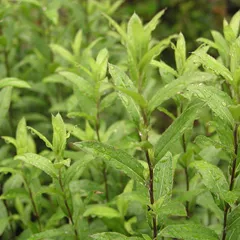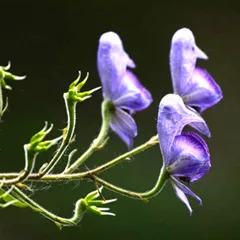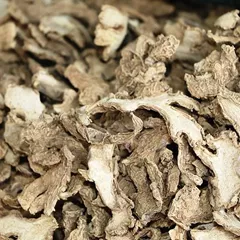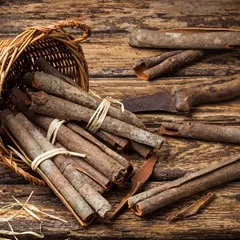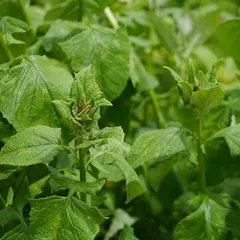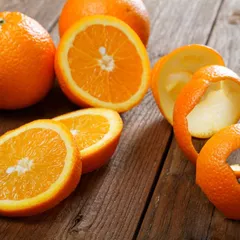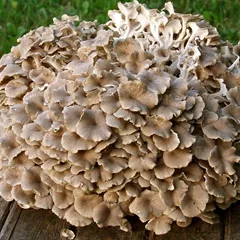Ge Hua Jie Cheng San
Ge Hua Jie Cheng San
Chinese: 葛花解酲散
Pinyin: Gé huā jiě chéng sǎn
Other names: Kudzu Flower Powder to Relieve Hangovers
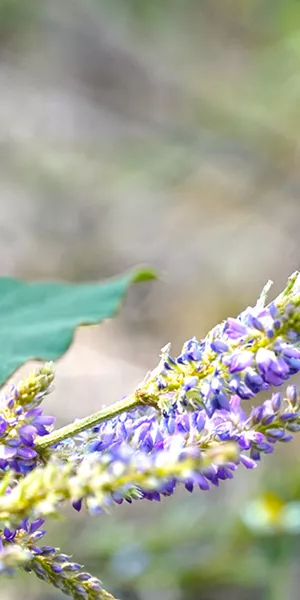
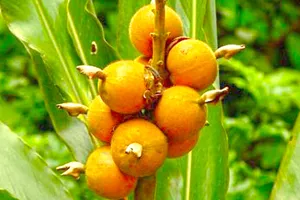
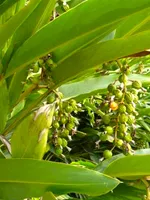
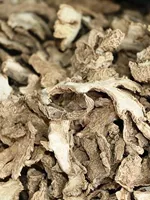




Ge Hua Jie Cheng San
Ge Hua Jie Cheng San
Chinese: 葛花解酲散
Pinyin: Gé huā jiě chéng sǎn
Other names: Kudzu Flower Powder to Relieve Hangovers
Number of ingredients: 13 herbs
Formula category: Formulas that reduce food Stagnation with tonification
Conditions for which it may be prescribed: HangoversAlcoholism
- Separates and reduces alcohol-dampness
- Warms the Middle
- Strengthens the Spleen
Contraindications: This formula is suited for those with Spleen Deficiency and accumulation of... This formula is suited for those with Spleen Deficiency and accumulation of Damp-Heat, but should not be taken long term as it can deplete the Qi and injure the Body Fluids. see more
Source date: 13th century
Source book: Discussion of the Spleen and Stomach
The information provided here is not a replacement for a doctor. You shouldn't use it for the purpose of self-diagnosing or self-medicating but rather so you can have a more informed discussion with a professional TCM practitioner.
Ge Hua Jie Cheng San is a 13-ingredient Chinese Medicine formula with Kudzu Flowers (Ge Hua) as a principal ingredient.
Invented in 13th century, it belongs to the category of formulas that reduce food Stagnation with tonification. Its main actions are: 1) separates and reduces alcohol-dampness and 2) warms the Middle.
In Chinese Medicine health conditions are thought to arise due to "disharmonies" in the body as a system. These disharmonies are called "patterns" and the very purpose of herbal formulas is to fight them in order to restore the body's harmony.
In this case Ge Hua Jie Cheng San is used by TCM practitioners to fight patterns like Damp-Heat in the Stomach or Damp-Heat in Stomach and Spleen. From a Western Medicine standpoint, such patterns can give rise to a range of conditions such as hangovers or alcoholism for instance.
On this page, after a detailed description of each of the thirteen ingredients in Ge Hua Jie Cheng San, we review the patterns and conditions that Ge Hua Jie Cheng San helps treat.
The thirteen ingredients in Ge Hua Jie Cheng San
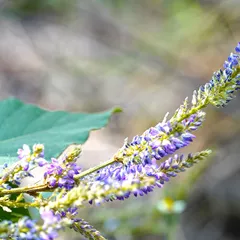
Ge Hua is a king ingredient in Ge Hua Jie Cheng San. Like the name indicates, it means it has more power than other ingredients in the formula.
1. Kudzu Flowers (Ge Hua)
Part used: The dried flower
Nature: Cool
Taste(s): Sweet
Meridian affinity: SpleenStomach
Category: Herbs that stop bleeding
Ge Hua enters the Yang Brightness, resolves alcohol toxicity, awakes the Spleen, and resolves Damp-Heat through gentle sweating.
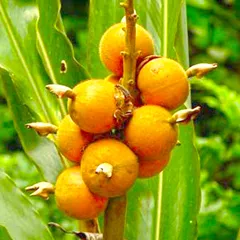
Bai Dou Kou is a deputy ingredient in Ge Hua Jie Cheng San. This means it helps the king ingredient(s) treat the main pattern or it serves to treat a coexisting pattern.
2. Cardamon Fruits (Bai Dou Kou)
Part used: Fruits
Nature: Warm
Taste(s): Pungent
Meridian affinity: SpleenStomachLung
Category: Aromatic herbs that transform Dampness
Bai Dou Kou warm the Middle Burner, strengthen the Spleen, harmonize the Stomach and invigorate Qi. Thus, the Spleen gains control over the accumulation of Dampness.
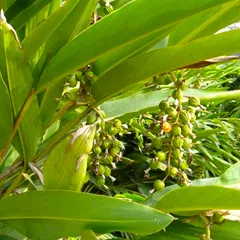
Sha Ren is a deputy ingredient in Ge Hua Jie Cheng San. This means it helps the king ingredient(s) treat the main pattern or it serves to treat a coexisting pattern.
3. Amomum Fruits (Sha Ren)
Part used: Dried ripe fruit
Nature: Warm
Taste(s): Pungent
Meridian affinity: KidneySpleenStomach
Category: Aromatic herbs that transform Dampness
Sha Ren warm the Middle Burner, strengthen the Spleen, harmonize the Stomach and invigorate Qi. Thus, the Spleen gains control over the accumulation of Dampness.

Gan Jiang is a deputy ingredient in Ge Hua Jie Cheng San. This means it helps the king ingredient(s) treat the main pattern or it serves to treat a coexisting pattern.
4. Dried Ginger (Gan Jiang)
Gan Jiang warm the Middle Burner, strengthen the Spleen, harmonize the Stomach and invigorate Qi. Thus, the Spleen gains control over the accumulation of Dampness.
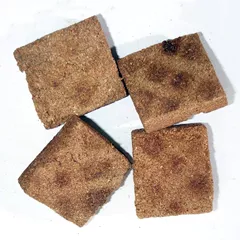
Shen Qu is a deputy ingredient in Ge Hua Jie Cheng San. This means it helps the king ingredient(s) treat the main pattern or it serves to treat a coexisting pattern.
5. Medicated Leaven (Shen Qu)
Part used: This is a fermented combination of wheat flour, Artemisia annua, Xanthium, Polygonum hydropiper and other herbs.
Nature: Warm
Meridian affinity: SpleenStomach
Category: Herbs that relieve Food Stagnation
Shen Qu resolves alcohol toxicity and assists the Spleen in transforming and transporting any Stagnation, partially in digesting foods. This is necessary because a Spleen burdened with Damp-Heat accumulation is unable to move food along, and the stagnant food combines with the alcohol toxin to produce symptoms such as headache and nausea. Qi-moving herbs such as Amomum fruit and Cuscuta seeds supports Medicated leaven in this matter.
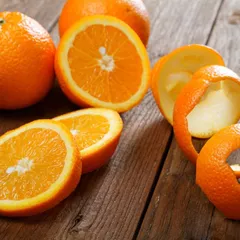
Chen Pi is a deputy ingredient in Ge Hua Jie Cheng San. This means it helps the king ingredient(s) treat the main pattern or it serves to treat a coexisting pattern.
6. Tangerine Peel (Chen Pi)
Chen Pi warm the Middle Burner, strengthen the Spleen, harmonize the Stomach and invigorate Qi. Thus, the Spleen gains control over the accumulation of Dampness.
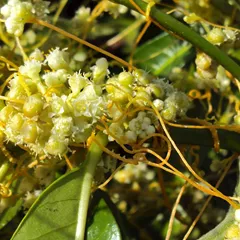
Tu Si Zi is a deputy ingredient in Ge Hua Jie Cheng San. This means it helps the king ingredient(s) treat the main pattern or it serves to treat a coexisting pattern.
7. Cuscuta Seeds (Tu Si Zi)
Part used: Dried ripe seeds
Nature: Warm
Taste(s): Sweet
Meridian affinity: KidneyLiverSpleen
Category: Tonic herbs for Yang Deficiency
Tu Si Zi warm the Middle Burner, strengthen the Spleen, harmonize the Stomach and invigorate Qi. Thus, the Spleen gains control over the accumulation of Dampness.
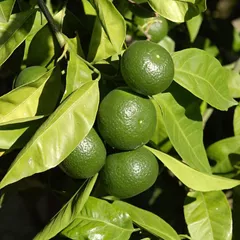
Qing Pi is a deputy ingredient in Ge Hua Jie Cheng San. This means it helps the king ingredient(s) treat the main pattern or it serves to treat a coexisting pattern.
8. Green Tangerine Peel (Qing Pi)
Part used: Dried pericarp of the young or immature fruits
Nature: Warm
Meridian affinity: GallbladderStomachLiver
Category: Herbs that regulate Qi
Qing Pi warm the Middle Burner, strengthen the Spleen, harmonize the Stomach and invigorate Qi. Thus, the Spleen gains control over the accumulation of Dampness.
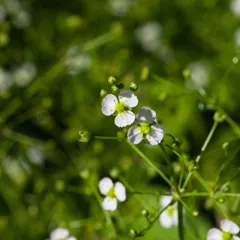
Ze Xie is an assistant ingredient in Ge Hua Jie Cheng San. This means that it either serves to reinforces the effect of other ingredients or it moderates their toxicity.
9. Water Plantain (Ze Xie)
Part used: Dried tuber
Nature: Cold
Taste(s): Sweet
Meridian affinity: BladderKidney
Category: Herbs that drain Dampness
In general Ze Xie's main actions are as follows: "Causes urination and removes Damp-Heat"
In the context of Ge Hua Jie Cheng San, it is used because it dispels Damp-Heat by promoting urination.

Bai Zhu is an assistant ingredient in Ge Hua Jie Cheng San. This means that it either serves to reinforces the effect of other ingredients or it moderates their toxicity.
10. Atractylodes Rhizomes (Bai Zhu)
Part used: Dried rhizome
Nature: Warm
Meridian affinity: SpleenStomach
Category: Tonic herbs for Qi Deficiency
Bai Zhu tonifies the Middle and strengthens the Spleen and Stomach, thus helping those Organs to recuperate from the damage caused by excessive alcohol consumption.
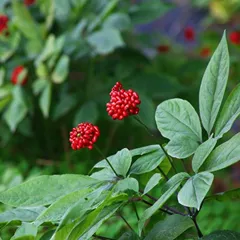
Ren Shen is an assistant ingredient in Ge Hua Jie Cheng San. This means that it either serves to reinforces the effect of other ingredients or it moderates their toxicity.
11. Ginseng (Ren Shen)
Part used: Dried root
Nature: Warm
Meridian affinity: HeartLungSpleen
Category: Tonic herbs for Qi Deficiency
Ren Shen tonifies the Middle and strengthens the Spleen and Stomach, thus helping those Organs to recuperate from the damage caused by excessive alcohol consumption.
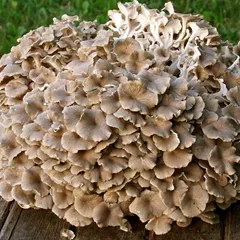
Zhu Ling is an assistant ingredient in Ge Hua Jie Cheng San. This means that it either serves to reinforces the effect of other ingredients or it moderates their toxicity.
12. Polyporus (Zhu Ling)
Part used: Dried sclerotium
Nature: Neutral
Taste(s): Sweet
Meridian affinity: BladderKidney
Category: Herbs that drain Dampness
In general Zhu Ling's main actions are as follows: "Drains Dampness and encourages urination"
In the context of Ge Hua Jie Cheng San, it is used because it dispels Damp-Heat by promoting urination.
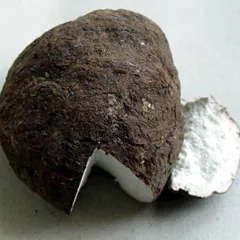
Fu Ling is an assistant ingredient in Ge Hua Jie Cheng San. This means that it either serves to reinforces the effect of other ingredients or it moderates their toxicity.
13. Poria-Cocos Mushrooms (Fu Ling)
Part used: Dried sclerotium
Nature: Neutral
Taste(s): Sweet
Meridian affinity: HeartKidneyLungSpleen
Category: Herbs that drain Dampness
In general Fu Ling's main actions are as follows: "Encourages urination and drains Dampness. Tonic to the Spleen/Stomach. Assists the Heart and calms the Spirit."
In the context of Ge Hua Jie Cheng San, it is used because it dispels Damp-Heat by promoting urination.
Conditions and patterns for which Ge Hua Jie Cheng San may be prescribed
It's important to remember that herbal formulas are meant to treat patterns, not "diseases" as understood in Western Medicine. According to Chinese Medicine patterns, which are disruptions to the body as a system, are the underlying root cause for diseases and conditions.
As such Ge Hua Jie Cheng San is used by TCM practitioners to treat two different patterns which we describe below.
But before we delve into these patterns here is an overview of the Western conditions they're commonly associated with:
Again it wouldn't be correct to say "Ge Hua Jie Cheng San treats hangovers" for instance. Rather, Ge Hua Jie Cheng San is used to treat patterns that are sometimes the root cause behind hangovers.
Now let's look at the two patterns commonly treated with Ge Hua Jie Cheng San.
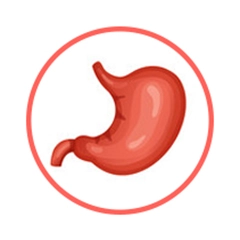
The Stomach is a so-called "Fu" Organ. Learn more about the Stomach in Chinese Medicine
Damp-Heat in the Stomach
Pulse type(s): Rapid (Shu), Slippery (Hua)
Symptoms: Nausea Facial pain Blocked nose Epigastric pain Feeling of heat Epigastrium fullness Feeling of heaviness Thick nasal discharge Dull-yellow complexion Sticky taste in the mouth Thirst without a desire to drink
Ge Hua Jie Cheng San is sometimes prescribed by TCM practitioners to treat Damp-Heat in the Stomach. This pattern leads to symptoms such as epigastric pain, epigastrium fullness, feeling of heaviness and facial pain. Patients with Damp-Heat in the Stomach typically exhibit rapid (Shu) or slippery (Hua) pulses.
In this pattern Dampness obstructs the Stomach, which prevents the descending of Stomach Qi and causes nausea and a feeling of fullness of the epigastrium.
The Stomach Channel connects to the face so the Dampness also leads to the symptoms of facial pain, blocked nose and thick nasal discharge.... read more about Damp-Heat in the Stomach
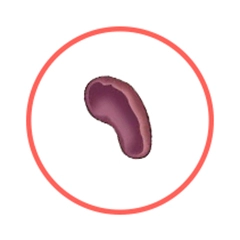
The Spleen is a so-called "Zang" Organ. Learn more about the Spleen in Chinese Medicine
Damp-Heat in Stomach and Spleen
Pulse type(s): Rapid (Shu), Soggy (Ru)
Symptoms: Nausea Loose stools Feeling of heaviness of the head and body A feeling of oppression in chest and epigastrium Continuous fever which does not reduce with sweating
Ge Hua Jie Cheng San is sometimes prescribed by TCM practitioners to treat Damp-Heat in Stomach and Spleen. This pattern leads to symptoms such as feeling of heaviness of the head and body, a feeling of oppression in chest and epigastrium, nausea and loose stools. Patients with Damp-Heat in Stomach and Spleen typically exhibit rapid (Shu) or soggy (Ru) pulses.
This is one of the five patterns of the Qi level, the second level of the Four Levels theory.
Here Damp-Heat causes sweating but, while it might give the impression it abates the fever, it comes back soon afterwards. The reason is because sweat comes from the space between the skin and muscles but... read more about Damp-Heat in Stomach and Spleen
Formulas similar to Ge Hua Jie Cheng San
Xiang Sha Liu Jun Zi Tang is 38% similar to Ge Hua Jie Cheng San
Wei Ling Tang is 38% similar to Ge Hua Jie Cheng San
Hui Yang Jiu Ji Tang is 38% similar to Ge Hua Jie Cheng San
Xiang Sha Yang Wei Wan is 38% similar to Ge Hua Jie Cheng San
Liu Jun Zi Tang is 31% similar to Ge Hua Jie Cheng San
Wu Ling San is 31% similar to Ge Hua Jie Cheng San

